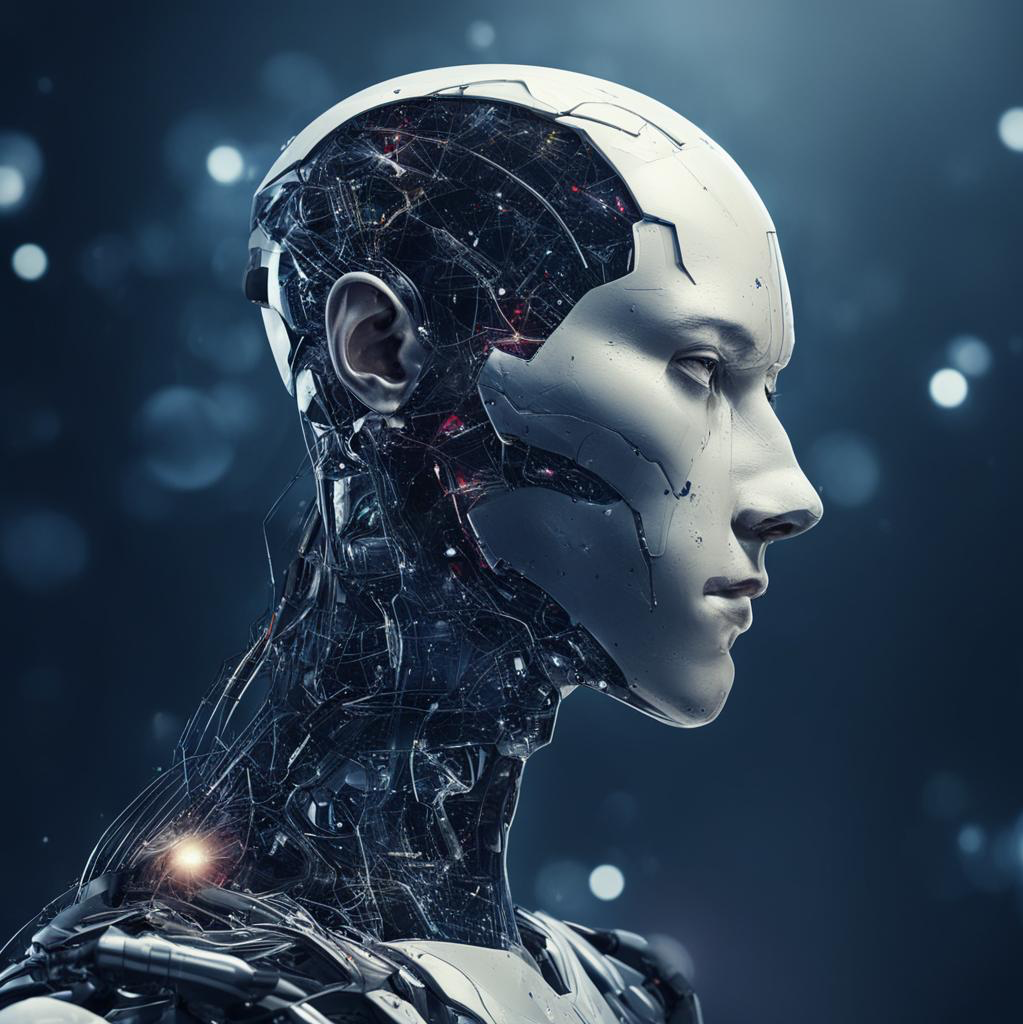Welcome to the immersive world of gaming, where artificial intelligence (AI) takes center stage! From thrilling battles in ancient realms to heart-stopping races through futuristic cities, AI has revolutionized the way we experience video games. In this blog post, we will delve into the exciting realm of AI in game development and explore how it enhances realism and complexity within virtual worlds. So grab your controller or keyboard, and let’s embark on an exhilarating journey where technology meets imagination!
The Evolution of AI in Video Games
AI has come a long way since the early days of video game development. In the past, game characters were controlled by simple scripts or predefined patterns that limited their behavior and made them predictable. However, with advancements in technology, AI in gaming has evolved to provide more realistic and complex experiences for players.
One major leap forward was the introduction of decision-making algorithms that allowed NPCs (non-player characters) to make choices based on their surroundings and interact with the player in a more dynamic way. This added an element of unpredictability to games, making each playthrough unique.
As processing power increased, developers began implementing machine learning techniques into game AI. This enabled NPCs to learn from player actions and adapt their strategies accordingly. For example, enemies could analyze a player’s combat style and adjust their tactics to counter it.
In recent years, there has been a surge in using neural networks for AI in games. These deep learning models can be trained on massive amounts of data to create intelligent agents capable of performing complex tasks such as natural language processing or image recognition within the game world.
Another area where AI has significantly improved is procedural generation. Instead of manually designing every aspect of a game world, developers can now use algorithms that generate content dynamically based on certain rules or parameters. This not only saves time but also adds variety and replay value to games.
The evolution of AI in video games has transformed them into immersive virtual worlds where characters behave realistically and adapt intelligently. With continued advancements in technology and research, we can expect even more exciting developments on this front in the future!
Advantages of Incorporating AI in Game Development
AI has revolutionized the gaming industry, bringing a whole new level of realism and complexity to virtual worlds. The integration of AI into game development has numerous advantages that enhance the overall gaming experience.
One major advantage is the ability to create intelligent and believable non-player characters (NPCs). Gone are the days when NPCs would mindlessly follow scripted paths or repeat pre-programmed dialogues. With AI, NPCs can now exhibit realistic behaviors, adapt to player actions, and make decisions based on their environment.
AI allows for dynamic and responsive game environments. Through machine learning algorithms, games can adapt to individual player preferences and provide personalized experiences. This creates a more immersive gameplay where each decision made by players has real consequences within the game world.
Another advantage is improved enemy intelligence. In traditional games, enemies often followed predictable patterns or lacked strategic thinking. However, with advanced AI systems, enemies can now analyze player behavior in real-time and adjust their tactics accordingly. This adds an extra layer of challenge for gamers who seek intense battles and unpredictable encounters.
Incorporating AI into game development enables procedural generation techniques. These techniques use algorithms to generate vast amounts of unique content such as landscapes, quests, puzzles or even entire levels in a fraction of time it would take human designers. This not only saves developers time but also ensures endless possibilities for players to explore.
AI-powered analytics tools help developers gain valuable insights into player behavior patterns which helps them refine their games for enhanced user engagement.
AI analyzes massive amounts of data collected during gameplay sessions ,allowing developers tо better understand how players interact with their games.
Examples of Popular Games with Advanced AI Systems
1. The Witcher 3: Wild Hunt
In this critically acclaimed open-world RPG, players encounter non-player characters (NPCs) that exhibit complex behaviors and emotions. Each NPC has their own daily routines, interests, and agendas, making the game world feel alive and dynamic.
2. Grand Theft Auto V
One of the most popular sandbox games to date, GTA V incorporates advanced AI to create a realistic urban environment. NPCs in the game react intelligently to their surroundings and engage in activities that mimic real-life city life.
3. Alien: Isolation
This survival horror game features an advanced AI system for its main antagonist, the alien creature. The alien learns from player actions and adapts its hunting strategies accordingly, providing a truly terrifying experience as it stalks you throughout the game.
4. Middle-earth: Shadow of Mordor
The Nemesis System in this action-adventure game showcases innovative AI capabilities by creating unique rivalries between the player character and enemy NPCs. These enemies remember previous encounters with the player and evolve dynamically based on those interactions.
Challenges and Limitations of Using AI in Games
Implementing artificial intelligence (AI) in games has undoubtedly revolutionized the gaming industry, but it also comes with its fair share of challenges and limitations. One major challenge is striking the right balance between realism and fun. While players want realistic gameplay experiences, too much realism can lead to frustratingly difficult or predictable environments.
Another challenge lies in creating adaptive AI that can learn from player behavior and adapt accordingly. Developing such a system requires complex algorithms and extensive testing to ensure that the AI responds appropriately to different scenarios.
Maintaining performance while running advanced AI systems can be challenging. The computational power required for sophisticated AI algorithms may strain hardware resources, leading to laggy gameplay or decreased visual quality.
Ethical considerations come into play when incorporating AI into games. There is always a risk of unintended consequences or biases within the AI decision-making process, which could result in unfair advantages or disadvantages for certain players.
As with any technology-driven field, there are limitations based on available resources and time constraints. Developers must carefully consider their priorities when implementing AI features to ensure they align with budgetary limits and release schedules.
Future Possibilities and Innovations in AI for Gaming
As technology continues to advance at an astonishing pace, the future of artificial intelligence (AI) in gaming holds exciting possibilities. Developers are constantly pushing the boundaries to create more immersive and realistic experiences for players.
One area where AI is expected to make significant strides is in procedural generation. Currently, game worlds are typically handcrafted by designers, which can be time-consuming and limit the size and complexity of virtual environments. However, with AI algorithms that can generate vast landscapes and intricate details on their own, developers can create games with virtually limitless exploration opportunities.
Another area of innovation lies in adaptive gameplay. Traditionally, games follow a predetermined script or set of rules. But imagine a game that adapts its challenges based on your playstyle or even learns from your actions to present unique experiences each time you play. This level of dynamic gameplay would add immense replay value and keep gamers engaged for longer periods.
Natural language processing (NLP) could revolutionize player interactions with non-playable characters (NPCs). Imagine engaging conversations where NPCs respond intelligently to not only pre-set dialogues but also interpret context from player inputs. This would greatly enhance the depth of storytelling within games.
Advancements in machine learning could lead to more sophisticated enemy behavior patterns and improved teammate AI intelligence in multiplayer games. Gone will be the days of predictable enemy movements; instead, we’ll see enemies adapting tactics on-the-fly based on real-time analysis of player behavior.
As AI continues to evolve alongside gaming technology itself, we can expect even greater realism and complexity in our favorite digital realms. The potential for emergent storytelling systems driven by intelligent algorithms means that no two gaming experiences will ever be quite the same again.
Conclusion
The integration of AI in game development has revolutionized the gaming industry, elevating the level of realism and complexity in virtual worlds. Through machine learning algorithms and advanced decision-making capabilities, AI-powered characters and systems have brought a new level of immersion to players around the globe.
We have witnessed how AI has evolved from simple pathfinding algorithms to sophisticated neural networks that can learn and adapt in real-time. This evolution has led to more dynamic gameplay experiences that challenge players’ skills and keep them engaged for hours on end.
The advantages of incorporating AI in game development are numerous. From creating realistic non-player characters with lifelike behaviors to generating procedurally generated content that keeps each playthrough unique, AI technology has opened up endless possibilities for game designers.
Popular games like “Red Dead Redemption 2” with its complex animal behavior system or “The Last of Us Part II” with its advanced enemy artificial intelligence showcase just how far we’ve come in terms of utilizing AI to enhance game world realism.
There are still challenges and limitations associated with using AI in games. Developing robust AI systems requires significant resources and expertise, which may not be accessible to all developers. Additionally, ethical concerns surrounding player manipulation or biased decision-making by AI need careful consideration as this technology continues to advance.
Artificial intelligence has become an indispensable tool for enhancing game world realism and complexity. Its ability to simulate human-like behaviors and make intelligent decisions brings games to life in ways we could only dream of a few decades ago.


